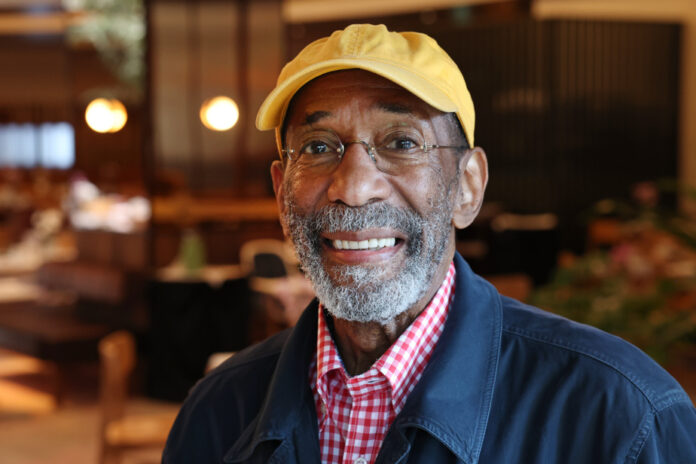Facetious question: who is the leader within a rhythm section, the drummer or the bassist? “The double bass player is not just the leader of the rhythm section, he is the leader of the entire group,” says Ron Carter, 86, one of the absolute masters of the instrument, whose inestimable contribution to jazz has been authenticated by the Guinness Book of Records. Report of our audience with a giant.
“I’ll give you one last, last,” says Ron Carter to the photographer who has been shooting him for a few minutes. The ultimatum, offered in a tone that is both teasing and blunt, sums up well the general attitude of the jazzman, who likes to push those with whom he works to their limits, not to corner them, but to force them to provide the best of themselves. To find something.
Ron Carter: Finding the Right Notes is the title of the fascinating PBS documentary released in fall 2022, in which the bassist insists that his job is all about this quest: finding the notes that will enhance his playing, as well as one who shares the light with him.
“My goal on stage is to make everyone better, but also to capture attention,” explains the New Yorker born in the suburbs of Detroit, met Thursday in a downtown hotel, a few hours before the concert that In the evening, he was the star guest of the Graduate Jazz Orchestra of the University of Montreal, directed by Ron Di Lauro and composed of virtuosos who have passed through the establishment over the last 20 years.
If a salesman’s brilliance is measured by the number of his sales, Ron Carter has been American Jazz’s Employee of the Month every month since the 1960s. Guinness Record holder for bassist appearing on the most recordings ( he was at 2221 as of September 15, 2015), the octogenarian has etched his name in the history of the genre as a pillar of Miles Davis’ second quintet (from 1964 to 1968), then as a solo artist, as well as lending his bewitching sound to albums by Chet Baker, Eric Dolphy, Stan Getz, Herbie Hancock, Coleman Hawkins and McCoy Tyner.
La basse dans Killing Me Softly with His Song de Robert Flack, dans The Revolution Will Not Be Televised de Gil Scott-Heron ou dans Verses from the Abstract de A Tribe Called Quest ? Encore Ron Carter.
Busy man, then. But what relationship does it have to silence? “Silence is my second best friend,” the veteran replies, laying one of his huge six-and-four giant hands on the reporter’s knee. “I like to think I know more and more when not to play, but it’s a constant learning process. »
“My role in a group often consists of curbing the hyperactivity of others,” he continues. In rehearsal yesterday, the kids [everyone’s young when you’re 86] were playing a little too loud because they were excited, and I had to stop them and say, “If you play too loud, if you play too many notes, you won’t be able to hear me, and I won’t be able to teach you anything.” »
A black man in the United States has never had the luxury of waiting for his talent to open doors for him; you had to assert it yourself.
“It gives me chills of fear to think back to the time the owner of that luxury hotel called his superior because he refused to admit that I could be the owner of the car I wanted to park. I can’t believe this happened to me, and this is just one example. It is one of the furrows in the tree trunk of who I am and it is this furrow that reminds me that I must chase away the slightest germ of hatred in myself. »
Last March, Ron Carter lost in Wayne Shorter one of his most illustrious collaborators. Does he believe, as music lovers sometimes imagine, that all the geniuses who have passed away meet up to jam somewhere in eternity?
“I believe, yes, that such a place exists”, says the one who would like to find the Montrealer Oscar Peterson there, with whom he only went on stage once, after having long named him in an interview among those with who he dreamed of playing.
“But if there is life after death, I’m not in a hurry to be there,” he hastens to add. Every time I play with new musicians, experienced or not, I discover new ways to communicate what is in my heart and my head. »















